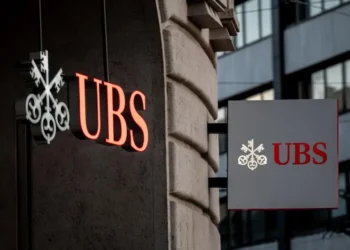In a move that could reshape the intersection of politics and digital finance, former President Donald Trump is reportedly preparing an executive order aimed at investigating crypto debanking practices in the United States. The initiative targets alleged financial discrimination by banks and payment processors against crypto-related businesses and politically affiliated individuals.
According to the Wall Street Journal, Trump’s team is preparing the order as part of a broader campaign to address what they describe as “ideological bias in the banking system.” The measure would push federal agencies to investigate cases where financial institutions have frozen or closed accounts linked to political views or cryptocurrency activity.
A Closer Look at Crypto Debanking: What’s at Stake?
The term crypto debanking refers to the growing trend of banks and payment platforms cutting off services to businesses and individuals associated with digital assets. This includes crypto exchanges, Web3 startups, wallet providers, and in some cases, content creators or activists funded through decentralized systems.
While often justified by compliance concerns or AML (Anti-Money Laundering) policies, critics argue that these actions lack transparency and may violate financial neutrality. The issue gained national attention after several U.S.-based crypto firms reported abrupt account closures without clear reasoning.
Recent evidence, including redacted “pause letters” published in Exhibit A, reveals that some banks explicitly referenced “crypto affiliation” or “high-risk political activity” as reasons for terminating financial services.
The Political Catalyst: Trump Positions Himself as Defender of Financial Access
Trump’s initiative aligns with his broader strategy for the 2025 election cycle, positioning himself as a defender of free speech and free markets—especially in digital domains. According reported by the Wall Street Journal, the forthcoming executive order will demand regulatory scrutiny of how banks evaluate client risk and whether ideological filters are being applied.

A redacted letter the FDIC sent in 2022 to a company asking it to pause its crypto activities. Source: FDIC
The order would instruct agencies like the FDIC, OCC, and Federal Reserve to compile a report on recent crypto debanking incidents, and propose policy reforms to prevent future abuses. This could include new compliance guidelines, more transparency requirements, or even penalties for institutions found to be discriminating based on lawful crypto use or political affiliation.
The Industry Reacts: Will This Lead to Real Change?
Crypto advocacy groups have long called for legal protections against banking exclusion. Many applauded the announcement as a long-overdue acknowledgment of the silent friction between TradFi and DeFi players.
“This is not just about politics,” said a Web3 policy strategist on X (formerly Twitter). “It’s about access to financial infrastructure. Without banking rails, crypto can’t scale.”
Still, critics warn that politicizing regulatory enforcement could undermine independence in financial oversight. Others note that major banks are still navigating unclear guidance from regulators like the SEC and FinCEN, making risk-based decisions amid mounting pressure.
Final Thoughts: Why the Crypto Debanking Probe Matters
The Trump-led probe into crypto debanking arrives at a pivotal moment. As crypto adoption continues to expand and institutional players ramp up exposure, the underlying financial plumbing—bank accounts, payment rails, compliance access—remains a bottleneck.If the executive order gains traction, it could force a national reckoning on how financial rights intersect with emerging technologies. Whether the initiative delivers reform or fuels more division remains to be seen. But one thing is clear: crypto debanking is no longer a fringe issue—it’s now a political flashpoint with global implications.










